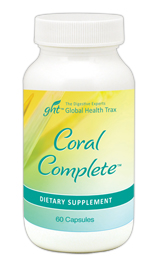|
Calcium and the Breathing SkeletonCalcium is the most abundant mineral in the human body and an important component of a healthy diet. It is essential not just for the normal growth and maintenance of bones and teeth, it is crucial for cellular signaling as well. The average adult human body contains in total approximately 1 kg, 99% in the skeleton (contained in the bones and teeth) in the form of calcium phosphate salts, the remaining 1 percent is found in the blood. Human Body has a Breathing Skeleton comprised of 206 bones The cells in the skeleton have to take up oxygen and release carbon dioxide, just like all the other cells in your body. Bones act as reserves of minerals important for the human body. Acid-base balance — Bone buffers the blood against excessive pH changes by absorbing or releasing alkaline salts.
Calcium signals respond to hormones, growth factors, neurotransmitters, and sensory systems, all of which are important for organ development and the normal balance between proliferation and cell death. Enzymes depend upon minerals for their function. In mineral deficiency states, the enzymes become sluggish or paralyzed, enzyme detoxification systems are impaired, and a state of "absence of health" develops. This is the beginning of many chronic disorders.
While a lifelong deficit can affect bone and tooth formation, over-retention can cause elevated levels of Ca in the blood, impaired kidney function and decreased absorption of other minerals. High Calcium intakes or high absorption of it were previously thought to contribute to the development of kidney stones. However, more recent studies show that high dietary of Ca intakes actually decrease the risk for kidney stones.
A comprehensive osteoporosis treatment program includes a focus on proper nutrition, exercise, and safety issues to prevent falls that may result in fractures. In addition, your physician may prescribe a medication to slow or stop bone loss, increase bone density, and reduce fracture risk. Nutrition: The foods we eat contain a variety of vitamins, minerals, and other important nutrients that help keep our bodies healthy. All of these nutrients are needed in balanced proportion. In particular, calcium and vitamin D are needed for strong bones and for your heart, muscles, and nerves to function properly. Exercise: Exercise is an important component of an osteoporosis prevention and treatment program. Exercise not only improves your bone health, but it increases muscle strength, coordination, and balance, and leads to better overall health. While exercise is good for someone with osteoporosis, it should not put any sudden or excessive strain on your bones. As extra insurance against fractures, your doctor can recommend specific exercises to strengthen and support your back.
Vitamin D is needed to absorb Calcium. Dairy products, such as milk and cheese, are a well-known source of it. However, some individuals are allergic to dairy products and even more people, particularly those of non Indo-European descent, are lactose-intolerant, leaving them unable to consume non-fermented dairy products in quantities larger than about half a liter per serving.
Ca supplements are used to prevent and to treat its deficiencies. There are conflicting recommendations about when to take the supplements. However, most experts agree that no more than 500 mg should be taken at a time because the percent of Ca absorbed decreases as the amount of Ca in the supplement increases. It is recommended to spread doses throughout the day, with the last dose near bedtime. Recommended daily Ca intake varies from 1000 to 1500 mg, depending upon the stage of life. As an essential mineral for human life, Coral Complete is an effective source of it, though by no means is the only one. While the Calcium component of coral is identical to any other limestone deposit, fossilized coral reefs may contain trace minerals helpful to the human body, though it's unlikely that a well-nourished individual would be deficient in any of these minerals.
Bay Coral Complete direct from manufacturer
From Calcium return to the page Health Supplements
|




